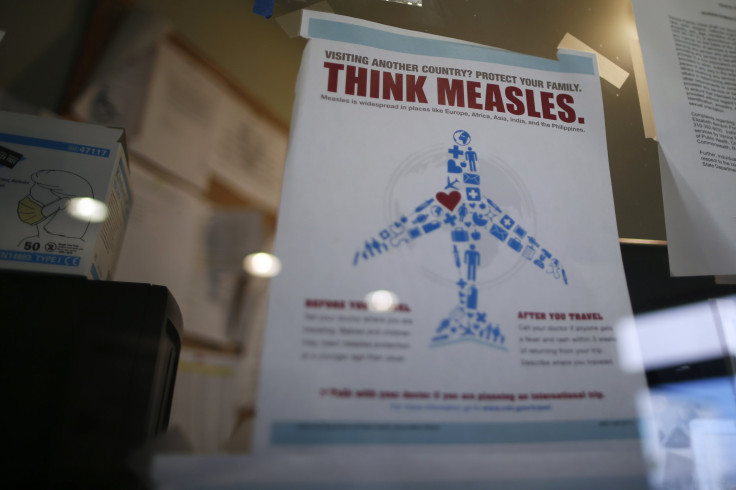Measles Outbreak In Germany Outpaces US By About 270 Cases, Yet Vaccination Debate Remains Relatively Silent

The number of measles cases in Germany has soared to 375 in the past four months, more than three times the number of infections seen in the U.S. where a measles outbreak linked to California’s Disneyland theme park surpassed 100 patients Friday. Two-thirds of Germany’s measles cases, clustered mostly in Berlin, were reported in January alone, Deutsche Welle reported. The outbreak has been discouraging for German health officials who had hoped to wipe out the highly contagious virus this year.
Experts have blamed the European country’s historically low immunization rate for the outbreak that began in October; however, the debate over vaccinations being waged in the U.S. has been all but absent in Germany, in part because the country previously has seen far worse outbreaks, the Washington Post reported. In 2001, a year after the U.S. officially declared measles eradicated, Germany reported more than 6,000 cases of the disease that causes skin rash, sore throat, fever and, in severe instances, hearing loss or even death. In the U.S., the measles outbreak that began in January has pitted pediatricians and health experts against a rising population of parents who opt-out of vaccinating their children for personal or religious reasons.
The majority of Germany’s measles cases have been in adults born from 1970 to 1990 who might not have received the full schedule of vaccinations. Germany implemented a two-dose measles vaccination schedule in 1991. Today, nearly 97 percent of German children 11 to 14 months of age have received their first dose of the measles vaccine, the German Medical Association said. Some 92.1 percent received the second dose, which provides nearly complete protection against the virus.
Health officials in Germany, like many countries in Europe, have found themselves fighting an uphill battle against measles. "The outbreak in Berlin is a sobering setback” in the fight to eradicate the disease, Robert Koch Institute director Anette Siedler said this week, according to the Post. “In general, Germany's immunization rate is too low.”
Germany has missed deadlines for eliminating measles before. Health officials there had originally committed to eliminating the virus by 2010, the World Health Organization said.
The virus isn’t just a German problem, but a European one. “Measles outbreaks continue to occur in Europe, underscoring some of the challenges still to be addressed in relation to the goal of eliminating measles from the region,” the Journal of Infectious Diseases reported. Last year, Europe reported nearly 4,000 cases of measles across the continent. France alone has seen more than 23,000 cases since 2010. “Improved efforts are needed to strengthen immunization programs, identify barriers for measles-containing vaccine uptake and explore methods to target vulnerable populations that are not being reached with routine immunization delivery services,” the journal said.
© Copyright IBTimes 2024. All rights reserved.












